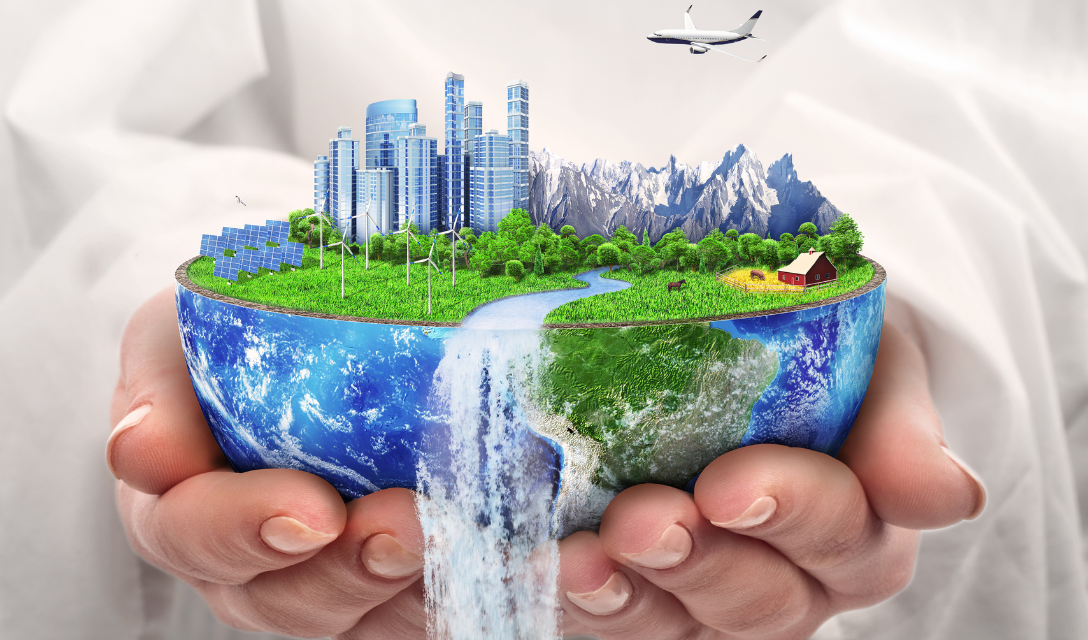As we mark another Earth Day, it’s crucial to reflect not only on our environmental responsibilities but also on the technological strides we’ve taken over the decades. Having spent 34 years at the forefront of emerging technologies, I’ve witnessed firsthand the transformative power of the industrial revolutions—from steam and railroads to digitalization and artificial intelligence. Yet, as we continue to push the boundaries of innovation, the environmental cost of our technological expansion is becoming increasingly clear.
The Evolution of Technology: A Double-Edged Sword
From the first industrial revolution to the digital age, each phase of technological advancement has brought with it both progress and environmental challenges. The rapid shift from agrarian societies to industrial powerhouses sparked unprecedented economic growth and urbanization, but at the expense of our natural resources and ecosystems.
Today, we stand on the brink of another significant transformation driven by artificial intelligence and big data. As an IT strategy professional, I’ve seen how AI can optimize processes and improve efficiencies, leading to significant reductions in energy usage in industries like manufacturing and logistics. However, these benefits come with their own costs, notably the massive energy demands of data centers which are the backbone of today’s AI innovations.
The Growing Demand for Compute: A Sustainable Concern
The exponential growth in data and AI’s computational needs is one of the most pressing issues for the technology sector today. The pursuit of more powerful AI models requires an ever-increasing amount of compute power, which in turn demands significant energy—much of which still comes from non-renewable sources. This places a substantial burden on our planet, contributing to carbon emissions and exacerbating the effects of climate change.
As technology leaders, it’s our responsibility to mitigate these impacts by advocating for and adopting renewable energy sources within our data centers. Innovations such as using ambient natural cooling, transitioning to more energy-efficient hardware, and exploring new, less energy-intensive forms of computing are paths we must pursue.
The Shift Towards a Post-Employment Economy
Looking ahead, the rise of automation and AI poses profound questions about the structure of our economy. The concept of a post-employment economy, where much of the work is automated, is no longer in the realm of science fiction. This shift could lead to significant societal changes, including reduced work hours and potentially higher unemployment rates.
However, this future also offers an opportunity for a renaissance of human creativity and leisure, where individuals have more time to engage in meaningful activities beyond work—potentially leading to a more thoughtful interaction with our environment.
Personal Reflections and a Look to the Future
Reflecting on my career, I have seen incredible changes that were once unimaginable. Looking forward, I envision a world where technology serves as a catalyst for sustainability rather than a contributor to environmental degradation.
As we move towards a more interconnected and automated future, I predict that technology will become increasingly integrated with natural processes. We’ll see advancements in technologies like biodegradable electronics, energy harvesting from the environment, and AI systems optimized for environmental sustainability. In this future, technology and nature coexist in harmony, leading us into a sustainable era that previous generations could only dream about.
On this Earth Day, let’s commit to not only celebrating our technological achievements but also to addressing the environmental impacts they entail. As IT strategists and technology leaders, it’s up to us to guide this ship thoughtfully, ensuring that our innovations pave the way for a greener, more sustainable future for all.

